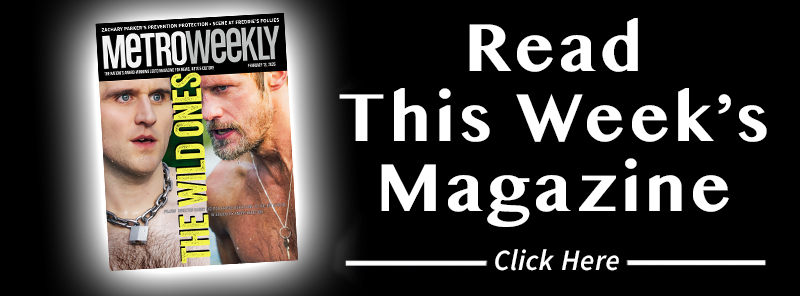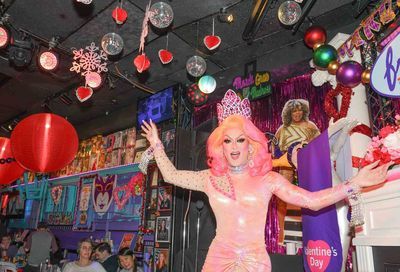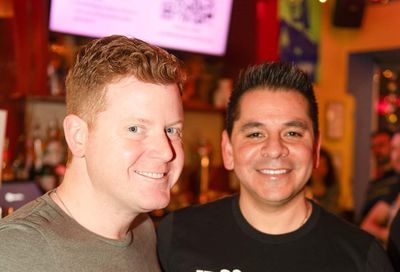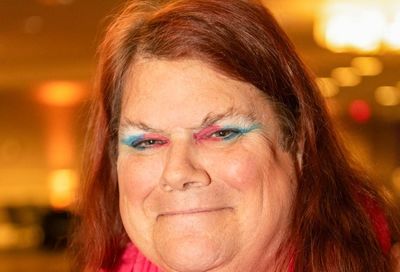Women's Work
Doria Roberts on Acting Like A Lady
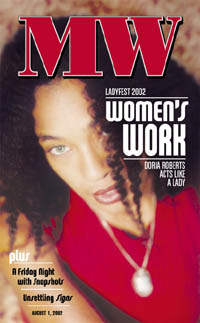 |
Let’s say you’re in Portland, Oregon. You’re on tour, packing it in after each gig and schlepping it to the next town where your audience couldn’t care less that you’re on three hours sleep and sore from the last motel’s mattress sinkhole. They’d like to hear their encore, thank you very much. Between driving and playing, what do you do in your downtime? Knock back a few tequila sunrises and kick it in the chaise lounge by the hotel pool? Or, like Doria Roberts, take some time out of your schedule to teach some budding guitarists at a girls’ rock n’ roll camp how to throw down a few chords?
Having lived among both the Haves and Have-nots, Roberts knows the value of helping others. Her inner-city upbringing taught her that community is a necessity, not just a luxury. It also provided the inspiration for much of her politically infused subject matter. So while Roberts’ touring prevents her from working within a specific community, she’s more than happy to help others on the fly. “My community service comes through my music,” she says.
She’s not speaking metaphorically. In 1995, permit complications bumped Philadelphia Pride from June into May. Determined to celebrate gay pride in its proper month, Roberts and a group called Grassroots Queers staged the first Queerstock festival illegally in a city park on June 3. Since then, Queerstock has become a multi-city tour championed by Roberts herself, who has managed to release four studio albums in that time, including one earlier this year aptly titled Alive and Well.
Now, Roberts expands her activist horizons to Ladyfest D.C., where she’ll perform alongside such venerable ladies as Tribe 8, Le Tigre, Erase Errata and The Naysayer. If you’re looking for a series of angry rants against The Man, you may be disappointed. Ladyfest D.C. is more about the creative force of women than the destruction of any establishment. “It’s not a reaction against the patriarchy,” says Roberts. “It’s just something we love to do.”
And sometimes just doing what you love, she points out, is the best way to put ladies first.
MW: You grew up in Trenton, New Jersey. How does your inner-city upbringing play into your music and politics?
DORIA ROBERTS: I grew up and went to public school for a while in a pretty disenfranchised part of the city, but then I got some scholarships and ended up at a prep school in Princeton. It was tough living two lives at the same time. I’d come home from this rich prep school to my neighborhood and see guns and drugs, people dying and people disappearing. I used to hate it, but now I’m glad I grew up that way. It allowed me to see that everyone has problems, no matter how much money they have. I went to school with the Menendez brothers. Erik was in my freshman year class and we were friends. So there you go. Everyone has problems.
MW: Were most of your friends from the school or from your neighborhood?
ROBERTS: Both. It was a great school and we did a lot of community service. Some of the community service projects were actually assisting my neighborhood. I’d be home on weekends and see my classmates performing their service work on my block. That was a little weird. But I think it helped me feel more comfortable around those people, because they saw where I came from and didn’t make assumptions about people from the inner-city. I learned the importance of community and helping out one another. The government and all their agencies aren’t always the ones doing the most good. Sometimes it’s just people extending their hands.
MW: How did coming out to your family go?
ROBERTS: [Laughs.] Coming out as a lesbian or as a musician? Because they were definitely more upset about the musician thing.
|
MW: Let’s start with the lesbian bomb.
ROBERTS: I had to come out as a lesbian in a context that made things a little bit traumatic. I was being stalked by an ex-boyfriend and I had to tell them because if something happened to me, I wanted them to know what was going on. So it was under duress, which made things difficult. But this was when gay was just becoming apropos. [The gay character] Pedro was on the Real World on MTV at the time, and when I came out to my nieces and nephews, they just said, “Oh, like Pedro. Cool.”
MW: When did you start to realize your musical orientation?
ROBERTS: I was studying business at the University of Pennsylvania and planning to work in Japan. We had a guest speaker once who said that in doing business overseas, we should learn the culture as well as the business. So I took a major in East Asian studies and began learning about these intense life philosophies like Buddhism and Taoism. I began to realize that there’s more to life than sitting behind a desk and manipulating numbers and people. At the same time, I learned that playing the guitar is a Taoist exercise, so I started playing as a way to meditate.
MW: Your music is constantly compared to Ani DiFranco’s, but there are differences between your style and hers. Do you mind the comparisons?
ROBERTS: I don’t mind them at all. Ani and I both have a very urban approach to folk and acoustic-driven music, and we have a similar elocution. But I’m not really influenced by Ani, necessarily. Growing up, I listened to rap. And this was in the throes of rap music, when the scene was just coming into its own. Sugarhill Gang, Run-DMC, De La Soul, KRS-One. That, to me, was inner-city folk music. Ani’s guitar playing is amazing, but I think the difference is that I have a more bluesy, R&B influence. I think people just don’t have many options for comparison. At first, people told me that I sound like Tracy Chapman. That would be a great compliment if it were true, but I knew where it was coming from and that made it hard to take. It was strictly a visual thing, if you know what I mean.
MW: You and Ani do have similar politics, though, and those come through in your lyrics.
ROBERTS: We do, but I think she tends to be more marginalized. I’m a little softer in approaching a subject. I try to make things a little more universal, and I think that comes from living on both sides of the fence.
MW: Which comes through in Queerstock, I think, which is a political festival, but one that’s more about community than militancy.
ROBERTS: Exactly. It’s like, “I’ve been marching, I’ve been fighting for visibility, and now I want to just hang out and be queer.” Queerstock’s motto is “Start enjoying what you’ve been fighting for.” That’s what it’s all about. Living well is the best revenge.
MW: Although there are those who would argue that the gay community has become too complacent, that we’re doing too much enjoying and not enough fighting.
ROBERTS: Well, Queerstock is basically for activists. It’s to make sure that they’re living while they’re not fighting. I’m a big romantic, and I think if you politicize yourself — your love — too much, it can really take the romance out of it. You need to step back and appreciate how far you’ve come or you could just wind up bitter. Queerstock [exists] to inspire the activists who are constantly working, always steeped in legislation, and let them enjoy what they’re accomplishing so their lives don’t become just a series of political events. Then after we all take a break, we can get back to the business of changing the world.
|
MW: Queerstock has always been very geared toward grassroots activism. Why is grassroots important to the gay rights movement, and have we fallen too far into a follow-the-leader mentality?
ROBERTS: Grassroots is important because without it, the underserved don’t get served. Yes, there are people who should go to five-hundred-dollar-a-plate dinners — that’s where a lot of our money comes from. But I think it’s a shame that those people control a lot of the images of the queer community. They don’t include the concerns of the lower classes or of people of color. I think it’s important to show that there’s solidarity within the movement and that it truly is a rainbow. As a queer community, we have the most opportunity to make a difference because we’ve got every sexuality, we’ve got class strata, all kinds of religious affiliations — we have all the elements of truly being a human rights movement. And instead of appreciating that, we’ve done what other human rights movements have done — and I’m talking about the civil rights movement and the feminist movement — we’ve turned it into something that’s all about financial power. I say just go out and do it yourself rather than wait around for HRC to understand what’s going on.
MW: But do you think it’s possible in a capitalist society to mobilize a movement that isn’t predicated on commerce?
ROBERTS: I’m not saying HRC should stop doing their work. We need money to campaign for laws we want passed. I just think there needs to be more acknowledgement of the larger community, and I think what would help with that would be a better defined leadership. Somebody with charisma and dedication and intelligence and equanimity. Someone to drive and unify the community, who could focus us and ask what we want. I know there are people out there, but I don’t see them as a Malcolm X or a Martin Luther King. Sometimes a celebrity will come out of the closet and be our spokesperson for the next six months. That’s not what I want to be.
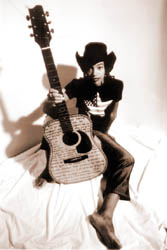 Doria Roberts |
MW: Music has certainly become less political than it was a few decades ago. Why do you think that is?
ROBERTS: I think people were more open and active as citizens in general back then. Now I think there’s a malaise, as if the government will just take care of everything. There’s still some political music — Bruce Springsteen, the Indigo Girls, a lot of rap music. I think now it’s called “social commentary.” [Laughs.] Got to remember to be PC.
And that’s the thing. Songwriters need to emote and say what they need to say without worrying if it’s PC. The last few lines of [my song] “Iguana” are a play on Patti Smith’s “Rock & Roll Nigger,” a song she got a lot of flack for but which was actually intended to arrest the word and show how it can be taken back. PC is a great movement, but it sublimates the hate. That’s almost more dangerous because then you don’t know who your enemy is. Being able to say the word nigger in a crowded room isn’t very PC, but it definitely focuses everyone’s attention on the person they need to be focused on.
MW: Is this what you’re talking about in “Flesh and Emotion” with the line, “I’m learning the consequences of freedom”?
ROBERTS: Well, that’s a loaded line. Free speech means someone can say some pretty horrible things that they’re protected by law to say. It’s tough to negotiate, because once you start taking away those people’s civil liberties, you can rest assured that it will give the right-wing just enough precedent to take away yours. It’s a very slippery slope, and something you have to be careful about.
But then freedom also means having responsibility. It’s hard to be up on all the issues, to make sure that that pair of socks you just bought don’t have a Nike swoosh on them. There’s so much to consider. And the more you claim to be aware, the more responsibility you have. It can be quite burdensome, and I think that’s why some people would rather remain ignorant.
MW: Ladyfest was originally started to celebrate women’s freedom to vote. Do you see Ladyfest as being a political event?
ROBERTS: Like Queerstock, I don’t think it’s overtly political, but just the act of putting on something like Ladyfest in the climate we’re living in is political. America is all about money, and doing something that’s not about money is radical in itself.
MW: Is that why women’s music festivals have become such a big thing?
ROBERTS: I think they’re about having someone tell you that you can’t do something, and then turning around and doing it anyway. Lilith Fair was about proving to the corporations that we can sell tickets without them, but after awhile, it’s not so much a reaction to anything, it’s just what you do. That’s what Ladyfest is all about. It gives women the opportunity to play.
|
MW: Especially women who don’t belong to major labels.
ROBERTS: Right. When I started thinking about playing music as a career in ’94 or ’95, the music industry wasn’t as slimy as it is now. At the time, I was paying for my CDs with fundraising parties. I’d do things like take a picture of myself, blow it up at Kinko’s, sign it and auction it off. Things then were still relatively okay for an artist. Now, I think great music comes out of major labels, but I don’t think great careers do. I don’t want to be a has-been after two hits and one record. I don’t want to stop when I’m just getting started.
MW: VH1 has an entire show devoted to just that.
ROBERTS: Exactly, and I don’t want to be on that show. You know how people get sick of music that’s on the radio? If someone was actually sick of hearing me, I’d be devastated. I need to have this be my job, and I want to be doing it for as long as possible.
Doria Roberts plays in Dupont Circle on Sunday, August 11th at noon. Admission is free. Schedule is subject to change. For more information, visit www.ladyfestdc.org. Doria’s new album, Alive and Well, is available through her website, www.doriaroberts.com.
|
View the entire Ladyfest schedule here at MW. |
Support Metro Weekly’s Journalism
These are challenging times for news organizations. And yet it’s crucial we stay active and provide vital resources and information to both our local readers and the world. So won’t you please take a moment and consider supporting Metro Weekly with a membership? For as little as $5 a month, you can help ensure Metro Weekly magazine and MetroWeekly.com remain free, viable resources as we provide the best, most diverse, culturally-resonant LGBTQ coverage in both the D.C. region and around the world. Memberships come with exclusive perks and discounts, your own personal digital delivery of each week’s magazine (and an archive), access to our Member's Lounge when it launches this fall, and exclusive members-only items like Metro Weekly Membership Mugs and Tote Bags! Check out all our membership levels here and please join us today!







